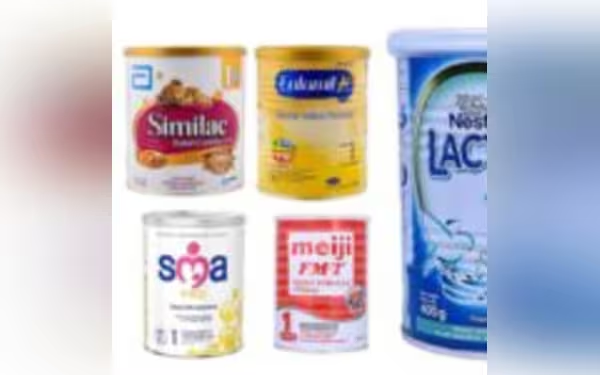Thursday, July 4, 2024 05:42 PM
Finance Minister's GST Proposal Sparks Industry Concerns
- Government considers 18% GST on infant formula and fortified milk products
- Local manufacturers propose phased GST implementation over three years
- Advocates emphasize balancing financial impact with child nutrition needs
 Image Credits: pakistantoday
Image Credits: pakistantodayThe formula milk industry in Pakistan faces challenges as the government considers an 18% GST on infant formula. Industry representatives and child nutrition advocates are concerned about the potential financial impact and urge a phased approach to implementation.
The formula milk industry in Pakistan is facing a significant challenge as the government considers implementing an 18% General Sales Tax (GST) on infant formula and fortified nutrition milk products. This move follows a recent price hike in loose milk, leading to concerns about increased costs for locally produced formula milk. Finance Minister Muhammad Aurangzeb's proposal to subject these products to the standard 18% GST has raised alarms among industry representatives.
The industry fears that this tax imposition could result in a price surge from Rs300 to Rs350-360 per one-litre container of tetra-pack milk, with an effective tax rate of approximately 25%. The burden of this tax is likely to fall on consumers, especially as a large percentage of traders are not registered with the Federal Board of Revenue (FBR) and may not comply with the new regulations.
Local manufacturers are advocating for a phased approach to the GST implementation, suggesting a gradual increase over three years. They propose starting at 5% in the first year, escalating to 10% in the second year, and finally reaching 18% in the third year. This strategy aims to mitigate the financial impact on both businesses and consumers while still generating revenue for the government.
Pakistan is currently facing a severe malnutrition crisis, with high rates of undernourishment and stunting among children. Advocates for child nutrition have highlighted the importance of considering these factors in the decision-making process. The Senate Standing Committee on Finance and Revenue has recommended a review of the proposed GST, emphasizing the need for a phased implementation to support child nutrition while balancing government revenue goals.
The proposed GST on formula milk products in Pakistan has sparked concerns within the industry and among advocates for child nutrition. Balancing the financial implications with the critical need to address malnutrition issues in the country is crucial. A phased approach to the GST implementation could offer a middle ground that supports both industry sustainability and child welfare.













